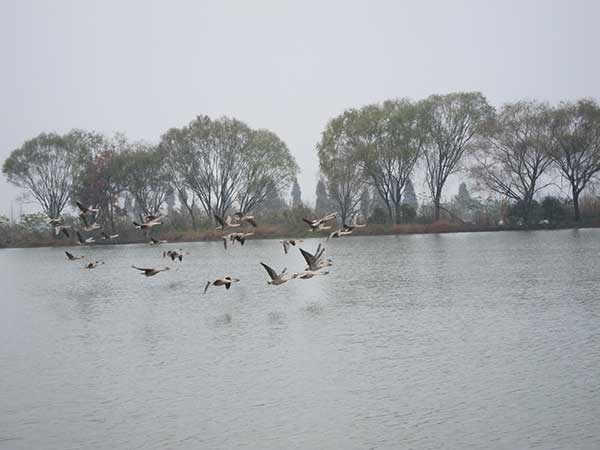Restoring a natural treasure
 |
|
Honghu Lake is a coveted sightseeing spot for bird-watchers.[Photo provided to China Daily] |
The all-time low for the region came in the early 2000s. It was then a nature reserve was founded with a series of protective measures in 2004 to revive Honghu.
More than 70 million yuan ($11 million) was allotted for the project.
The Honghu area was first divided into three zones: the core, the buffer and the experimental.
Zhu Junhua, head of the Honghu Wetland Protection Bureau, says: "We manage by setting strict standards for the zones.
"Human interference is prohibited. Fishing is allowed only in the experimental zone and has to be done the traditional way."
"We got rid of all the fences and nets used to trap fish.
"We monitor water quality and use treatments that target specific problems.
"We are implementing new rules and regulations, and promote the idea of ecological protection to all residents in the area," he says.
There are more than 2,000 fishing families living off Honghu. They are each assigned 20 mu (1.3 hectares) of water to do aquaculture, leaving the larger areas of water to recuperate.
Vocational training in other areas is also offered to the fishing population so that they can change occupations should they choose to move.
Zhang Shengyuan stayed to become a ranger in a 5,000 mu pilot zone. His wife and son now live off the 20 mu of water allotted to the family.
"Now that water is cleaner, we earn more from the 20 mu than we used to from the thousand mu of unregulated water," he says.
The area is also seeing the development of eco-tourism.
Lantian, another segment of Honghu is now a coveted sight-seeing spot for bird-watchers in late November and December.
Zhu says: "Think of it. We had only about 2,000 birds left in the core area 10 years ago.
"We have 45,000 now."




















